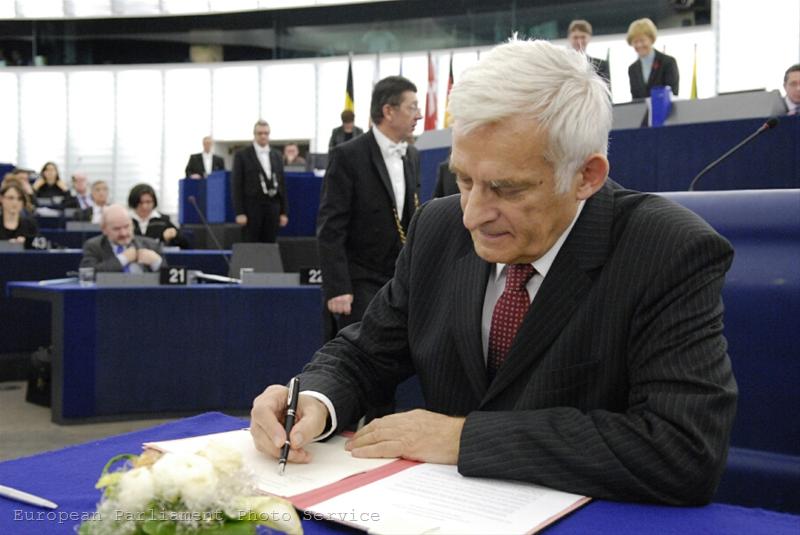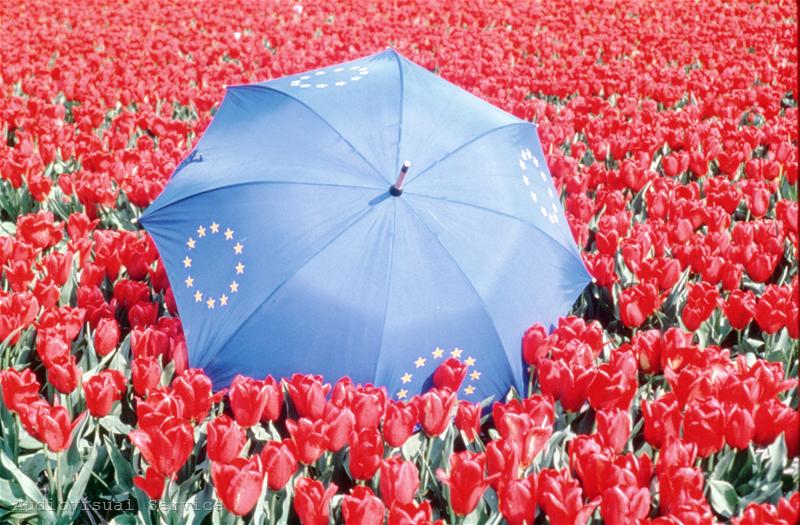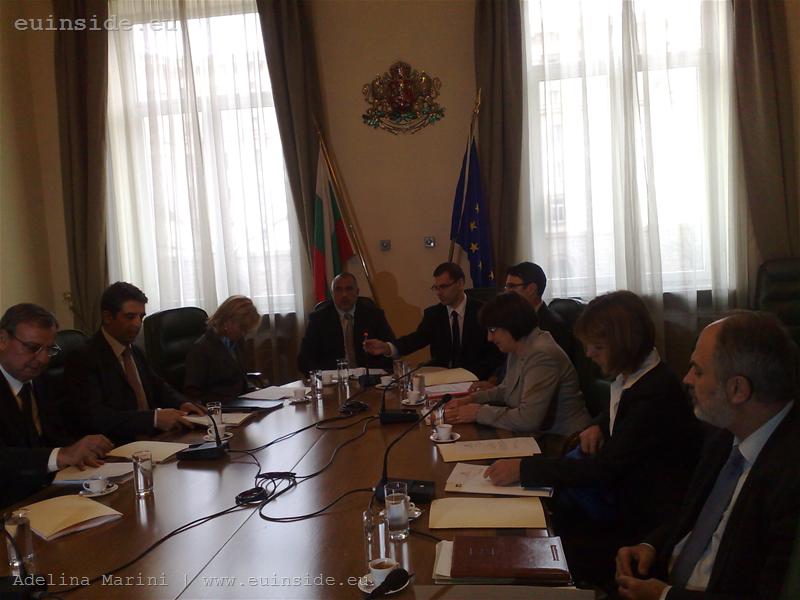The EU budget for 2007-2013
Adelina Marini, December 13, 2005
 The dispute about the financial perspectives of the EU for 2007-2013 or the budget of the Eu. This issue provoked fierce discussions around the "controversial and delicate" topic of the British rebate or return of budget money to the UK - 3 bn euro each year. Britain put the abolishment of the rebate as e precondition to France to agree to a radical reform of the CAP (Common Agriculture Policy) of which the French farmers receive almost 44% of the overall budget of the Community in subsidies.
The dispute about the financial perspectives of the EU for 2007-2013 or the budget of the Eu. This issue provoked fierce discussions around the "controversial and delicate" topic of the British rebate or return of budget money to the UK - 3 bn euro each year. Britain put the abolishment of the rebate as e precondition to France to agree to a radical reform of the CAP (Common Agriculture Policy) of which the French farmers receive almost 44% of the overall budget of the Community in subsidies.
What is the rebate? In short this is a justification for the concession for Britain from the net contributions of the UK to the budget of the EU because some decades ago Britain contributed much more than other member states on different programmes of the Community. This information is being publishes each year by the Commission. The possibility of correction of the net balance has been agreed when Britain joined the EU in 1973. After tough negotiations in 1974-1975, a new mechanism had been established, based not on the net balance but on the gross contribution.
But this did not solve the problem. The final decision had been taken in Fontainebleau 10 years later when the then British prime minister Margaret Thatcher managed to agree this mechanism for  the UK only. This decision was based on the principle that "... each member state that is experiencing budget burden of bigger extent than its relative prosperity, can benefit from a correction in a specific moment". In 1984 the factors for a change in the position were three: Regarding the revenues the UK is more inclined to import from countries outside the Community which leads to higher taxes and duties for the budget. Secondly, regarding expenses the UK uses almost no money from the CAP which then was 70% of the overall budget.
the UK only. This decision was based on the principle that "... each member state that is experiencing budget burden of bigger extent than its relative prosperity, can benefit from a correction in a specific moment". In 1984 the factors for a change in the position were three: Regarding the revenues the UK is more inclined to import from countries outside the Community which leads to higher taxes and duties for the budget. Secondly, regarding expenses the UK uses almost no money from the CAP which then was 70% of the overall budget.
If there was no rebate, the net contribution of Britain in 1985 would had been 0.5% of the GNI in the country which, in comparison to the others, makes the proportion too big. For example the GNI of Western Germany then was 109.6% of the average. That is why I asked the former MEP Ben Patterson who also worked in the research centre of the Committee of economics, budget and finance in the EP whether it is true that all member states, including the newcomers are now financing the rebate of Britain?
BEN PATTERSON: If there are no changes, yes, indeed, which is definitely not fair and, as everything else, should also change. It is clear that the newcomers should not pay the British concession.
- But there is something else - on the one hand the obstacles come from the conflict between France and Britain because Paris does not want to get rid of the farmers' subsidies and London - the rebate. But on the other hand, the newcomers receive quite a lot of money and they need it but they also do not absorb it?
 BEN PATTERSON: Exactly! That is why we fell in a very odd situation when Britain is ready to give away part of the concession but if the newcomers do not get that much money because, as the British argument goes, they will not be able to absorb it either way. I find it strange though, that the decrease of the rebate is being bound to cuts in the structural funds for the newcomers.
BEN PATTERSON: Exactly! That is why we fell in a very odd situation when Britain is ready to give away part of the concession but if the newcomers do not get that much money because, as the British argument goes, they will not be able to absorb it either way. I find it strange though, that the decrease of the rebate is being bound to cuts in the structural funds for the newcomers.
- What about France?
BEN PATTERSON: Look, in the long term, the most fair deal would be the share of the agriculture in the budget to drop as in the same time the need of the British rebate will disappear. And it is exactly where we hit the rock because the French do not concede and the UK does not want to make any compromises about the rebate. Sooner or later there has to be an agreement. It is really ridiculous 40% of the budget to go for agriculture which, on its part, is a tiny part of the economy of the EU. What Britain insists for and I think it is reasonable, is to transfer part of this budget to science research and innovation, infrastructure, because this would make the economy more competitive.
- Right, but in the same time there are a lot of countries, like 2 of the biggest - Poland and France, that are mainly agricultural states?
BEN PATTERSON: You're right but France is not a poor country, it is even very rich. So one of the solutions would be France to subsidize its own agriculture from its own budget and not to take any money from the budget of the EU. Poland is a different case - it is true that agriculture takes a  large part of the Polish economy but, in fact, what this country needs is money for agriculture, infrastructure, modernisation.
large part of the Polish economy but, in fact, what this country needs is money for agriculture, infrastructure, modernisation.
- Yes, the newcomers generally need money for so many things that it would be very hard to imagine how they will manage with the absorption of the funds. But I would like to ask you something else - this seems to be closing the vicious circle and let's hope that there will be a deal, but don't you think that this problem exists because the EU is not quite integrated?
BEN PATTERSON: Let's look proportionally - the budget of the Union is extremely small - it is about 1% of the GDP and it appears that we are fighting for indeed very little amount of money, if we look at it globally. It is important what direction the budget will take in the future and this is also a part of the argument. The UK wants it to be directed more to science and research while the so called communautaire or the legislation of the EU, distributes the bigger share of the budget for agriculture. This is historically preordained and is normal - it takes us back to the famous deal between Germany and France when France agreed to open its borders for the German industry in exchange to protection for the French agriculture via the budget. And as all those agreements are historically preordained, now it is very hard to untie the knot.
I cannot not ask you about Bulgaria because politicians here feel as if they are safe from all those financial arguments for the fact that together with Romania we've negotiated a package for the first 3 years of EU membership. But do we really have enough reasons to feel secure?
BEN PATTERSON: Sooner or later there must be an agreement because we cannot continue without a budget. In the Treaty it is written that if there is no budget then the previous one is divided in 12 for each month. So, there will be a budget, don't worry about that, but the idea is a long term perspective. But I don't think that Bulgaria should worry, the budget will not disturb enlargement. These are two separate things. There is no connection between budget and enlargement, beside political ones, mainly because the states that contribute to the budget like Germany, Sweden, the UK and the Netherlands are afraid that if there is a change in the way the budget is formed, every enlargement will force them to pay more and more to finance the newcomers.
 | © European Parliament Photo Service
| © European Parliament Photo Service | © Audiovisual Service
| © Audiovisual Service | © euinside
| © euinside